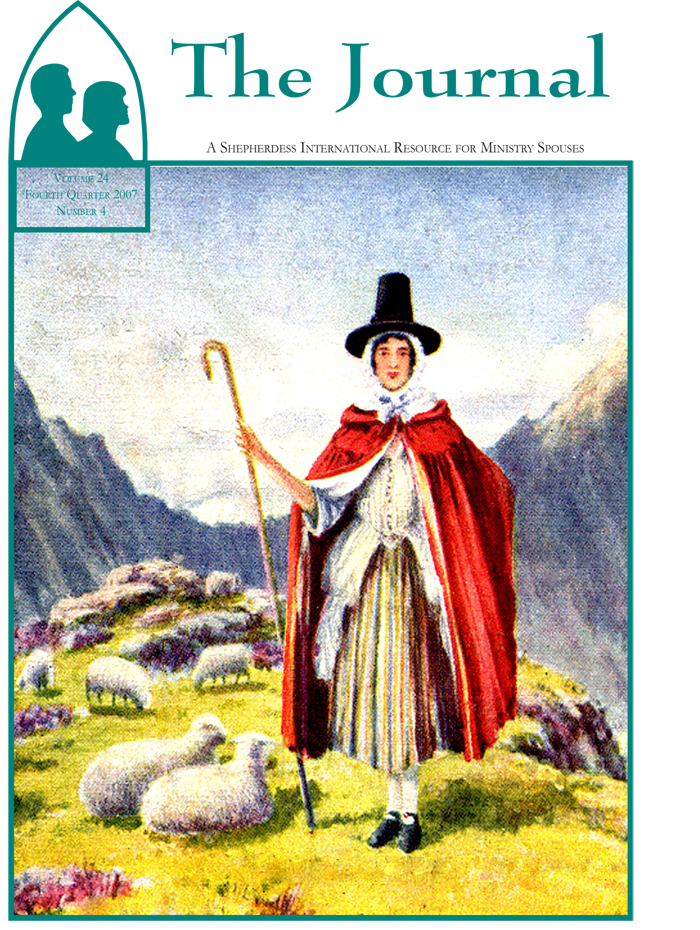For most of our ministry assignments, my family and I have lived in apartments upstairs. But when we moved to Hosur, the division headquarters, I had a garden of my own. I did not work in the garden enthusiastically and cheerfully at first; rather, I was forced into it. I had to weed, water, and prune to keep the garden presentable. As the days passed, I saw the fruits of my labor and began to enjoy gardening. I spent all my spare time in the garden.
I became the Shepherdess Coordinator and Women’s Ministries Director of the former South India Union in the latter part of 1993, and then for the division in 1998. This position took me to different places, and I began collecting seeds, seedlings, bulbs, and cuttings from wherever I went, including Nepal, Sri Lanka, Washington D.C., and California. Each one found a place in my garden. I enjoyed nurturing them. There were times I talked to them and sang to them. Some thrived. I enjoyed the beauty of the flowers and their sweet fragrance. They bloomed where I planted them. I spent more time with those that did not grow well, only to see them wither and die a slow death. Though sad and disappointed, I learned that God has placed different plants in different places to suit the climatic conditions.
God, in His wisdom, has planted you and me in a particular family, in a specific church, to bloom for Him, to disperse the fragrance of His love and draw many to the Savior. Let me share with you the story of one of the Bible characters who bloomed during Christ’s time.
She was the offspring of a mixed race, hated by the ” race of the day. Given a choice, she would have chosen to be a member of the pure race. Nevertheless, if you believe that children are a heritage of the Lord, she definitely was one. Though her birthplace, race, and family were not her choice, her lifestyle was. It was not worth mentioning. She was probably shunned, ridiculed, mocked, despised, and rejected by the young and old of her society. Why else would she choose to go to the well at an odd time when the rest of the community went in the morning and evening?
Strangely enough, she found a man at her destination who belonged to the pure race. Most people in this group hated her community and did not want to have anything to do with her people. None of them passed through her town at any time. To her surprise, this man started a conversation with her, contradictory to the culture of the day and his race. Hiding her emotions, she bravely wove into the conversation. Asked questions. Clarified her beliefs. Told the truth. Shared what she knew. Longed for the invaluable commodity this stranger was willing to offer for free, little realizing the spiritual application of it. Because she listened, asked questions, and believed what the stranger told her, she had the privilege of an encounter with the Messiah.
Who would believe an ill-reputed woman? Did she care about her reputation? No, she could not keep the good news of her encounter with the Messiah a secret. Ignoring the mission that brought her to the well, she ran back to town, her heart overflowing with joy and happiness, and with hope for her future, which she never experienced in her life; she invited her fellow townsmen to have an encounter with the Messiah she had found.
The Samaritan woman permitted Jesus Christ, the Messiah, to weed the garden of her heart, quench her thirst with the “living water,” and nourish her soul with the “bread of life.” The rays from the Sun of Righteousness embraced her life, enabling her to bloom where God had planted her and dispersing the fragrance of His love and mercy.
Despite her reputation, “many of the Samaritans from that town believed in Him because of the woman’s testimony” (John 4:39).
The God who planted the lotus in muddy, stagnant water to bloom with all its beauty and fragrance enabled the woman whom He planted in Samaria to bloom in Sycar, leading many to the Savior.
What did Jesus do to make the Samaritan woman bloom where she was planted?
1. Jesus Christ valued the worth of the Samaritan woman.
2. Jesus considered her worthy of eternal life.
3. Jesus initiated contact with something familiar.
4. Jesus listened while the woman spoke.
5. Jesus aroused interest.
6. Jesus said just enough for her to long for more.
7. Jesus accepted her as she was.
8. Jesus kept the conversation focused and to the point.
9. Jesus revealed His identity in a simple manner.
10. Jesus went where He was invited.
You will bloom where God has planted you if you will:
1. Listen to God’s voice.
2. Converse with Him anytime, anywhere.
3. Believe that He cares for you.
4. Confess your sins.
5. Yearn for the “living water.”
6. Have an encounter with God.
7. Share what the Lord has done for you.
8. Permit God to weed the tares from your heart.
9. Meditate upon what He says.
10. Allow the Son of Righteousness to fall on you. Choose today to bloom where you are planted, to disperse the fragrance of God’s love and drawing many to the “Living Water.”
